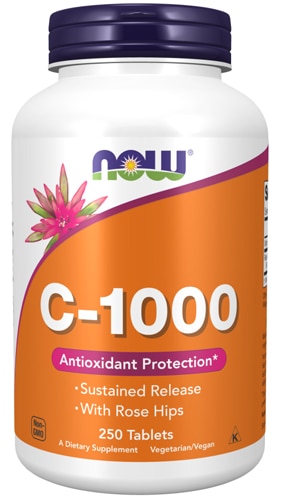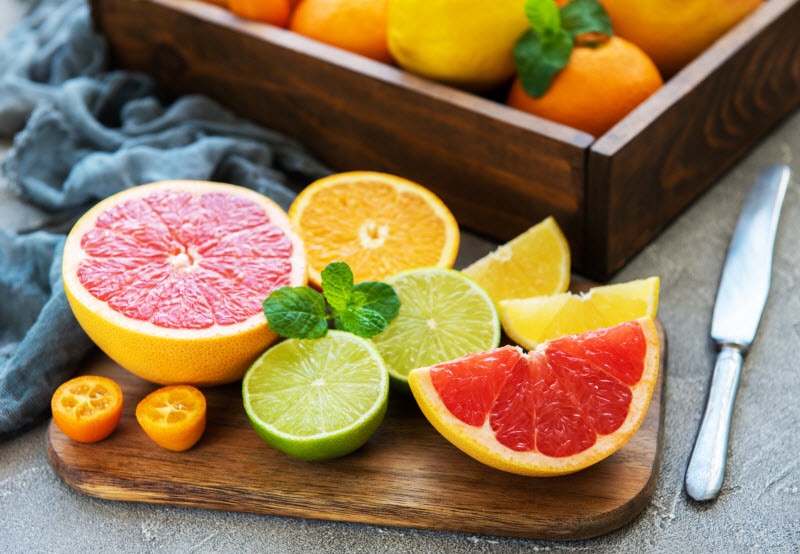If you’re taking steps to support your immune health right now, good for you! The immune system helps defend the body from things in the environment that may be harmful. For best immune function, your body requires several things. First, it’s important to eat a healthy diet rich in fruits and vegetables, so you get all the vitamins and minerals you need. You also need to make sure you get good sleep, and that you’re taking steps to manage stress.
The vitamins and minerals that play a part in immune system health include vitamin C, vitamin E, vitamin A and zinc. These nutrients all have different roles, but they work in harmony to provide defense. Here, we’ll take a closer look at how vitamin C works, and what you can do to ensure you’re getting enough.
What is vitamin C?
Vitamin C is a water-soluble vitamin. This means that it needs to be replenished regularly for it to do its job properly. Vitamin C is responsible for several functions in the body.
Number one, vitamin C is an antioxidant, or a compound that protects healthy cells from damage caused by unstable molecules (otherwise known as free radicals). Vitamin C also helps to regenerate other important antioxidants, such as vitamin E, helping to ensure antioxidant levels are adequate for defense.
Additionally, vitamin C plays a part in protein metabolism, helping to create collagen in the body. Collagen is needed for the maintenance of our tendons, skin, bones, teeth and more.
Vitamin C’s role is crucial in maintaining a healthy immune system. So it’s especially important to make sure you’re getting enough every day.
How much vitamin C do we need?
The recommended dietary intake of vitamin C for adults is 65 to 90 milligrams (mg) a day. The recommended dietary intake of vitamin C for kids Is between 15 mg and 75 mg, depending on their age. Eating just a half cup of sliced or chopped red bell pepper would provide the vitamin C needs of a child or an adult.
What are some of the best vitamin C foods?
Vitamin C is found naturally in a variety of fruits and vegetables. If you are eating the recommended five to nine servings of fruits and vegetables daily, there’s a good chance you’re getting enough vitamin C.
The following foods are some of the best vitamin-C rich options to add to your diet:
Red bell pepper
Provides 95 mg per ½ cup
Slice and dip in hummus, or try them roasted on the grill
Brussels sprouts
Provide 90 mg per cup (cooked)
Slice in half and toss with olive oil, salt and pepper, then roast at 425 degrees for 30-45 minutes
Orange
Provides 70 mg per 1 orange
Slice and enjoy as refreshing afternoon snack, or peeling, segmenting and adding to a citrus salad
Kiwi
Provides 64 mg per 1 kiwi.
Slice and eat as a snack, make a kiwi smoothie or pair with cottage cheese
Green pepper
Provides 60 mg per ½ cup
Chop and add to an omelet
Broccoli
Provides 51 mg per ½ cup (cooked)
Sautee with sliced carrots, onion and peppers for a vegetable stir fry
Strawberries
Provide 49 mg per ½ cup
Slice and mix into yogurt with almonds or walnuts, or add to a smoothie
Grapefruit
Provides 39 mg per ½ medium grapefruit
Slice in half and eat with avocado toast for a well-rounded breakfast, or add slices to a salad
Cauliflower
Provides 26 mg per ½ a cup (raw)
Pulse in food processor to make cauliflower rice, or steam, freeze and add to smoothies
Should you take a vitamin C supplement?
While vitamin C supplements are readily available, it’s always best to strive for adequate intake from food. Vitamins and minerals are best obtained from their natural sources; the other compounds in the food allow you to better absorb the nutrients from the food itself.
If you do want to take a supplement, be sure to discuss it with your healthcare provider first.
A simple way to begin increasing your intake of vitamin C is to select one source of vitamin C and find new ways to incorporate into your diet. It can be overwhelming to change all at once, so pick one that is simplest for your lifestyle.
Building a baseline healthy immune system takes time and effort, but it’s well worth the investment. Remember, it is about progress, not perfection. So, ask yourself, what can you do to invest in your health today?




